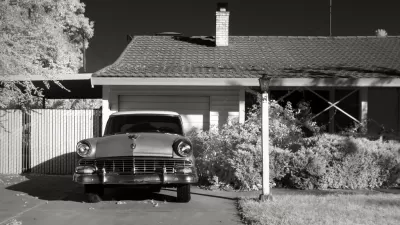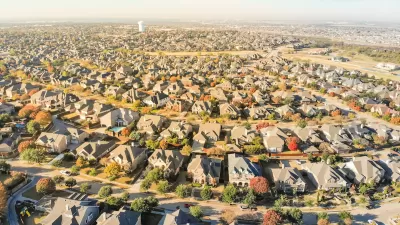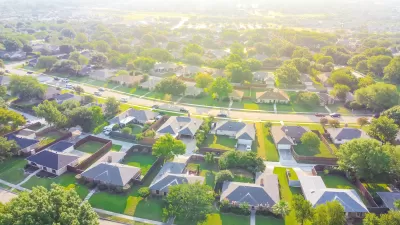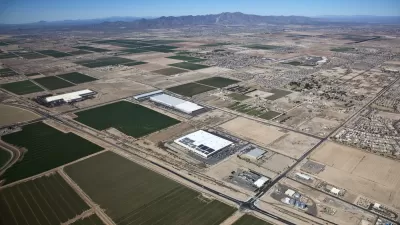A new book explains how suburban dwellers have built "zoning rules, housing covenants and other mechanisms" to protect "their privileged place in the residential pecking order."

Robert McCartney provides insight into a new book by Ben Ross, Dead End: Suburban Sprawl and the Rebirth of American Urbanism. Ross, a scientist by profession, "led the grass-roots campaign for the light-rail Purple Line in the Maryland suburbs for 15 years."
The book, according to McCartney, "is drawing praise for its well-researched analysis of why so many Americans live in widely dispersed, single-family homes and spend so many hours stuck in traffic."
"It also casts light on the cultural forces at play in major disputes gripping our region over affordable housing, the 'war on cars,' the Columbia Pike streetcar in Arlington, and the redevelopment of White Flint in Montgomery and Tysons Corner in Fairfax County."
McCartney focuses on Ross's argument that sprawl is a symptom of status-seeking obstructionists, or NIMBYs, who protect their interests with a system of "snob zoning."
Robert Steuteville also produced a detailed review of Dead End, calling it "the shrewdest book on the psychology of the built environment that I have read in a long time."
FULL STORY: New book by Purple Line activist Ben Ross blames suburban sprawl on status-seeking

Maui's Vacation Rental Debate Turns Ugly
Verbal attacks, misinformation campaigns and fistfights plague a high-stakes debate to convert thousands of vacation rentals into long-term housing.

Planetizen Federal Action Tracker
A weekly monitor of how Trump’s orders and actions are impacting planners and planning in America.

San Francisco Suspends Traffic Calming Amidst Record Deaths
Citing “a challenging fiscal landscape,” the city will cease the program on the heels of 42 traffic deaths, including 24 pedestrians.

Defunct Pittsburgh Power Plant to Become Residential Tower
A decommissioned steam heat plant will be redeveloped into almost 100 affordable housing units.

Trump Prompts Restructuring of Transportation Research Board in “Unprecedented Overreach”
The TRB has eliminated more than half of its committees including those focused on climate, equity, and cities.

Amtrak Rolls Out New Orleans to Alabama “Mardi Gras” Train
The new service will operate morning and evening departures between Mobile and New Orleans.
Urban Design for Planners 1: Software Tools
This six-course series explores essential urban design concepts using open source software and equips planners with the tools they need to participate fully in the urban design process.
Planning for Universal Design
Learn the tools for implementing Universal Design in planning regulations.
Heyer Gruel & Associates PA
JM Goldson LLC
Custer County Colorado
City of Camden Redevelopment Agency
City of Astoria
Transportation Research & Education Center (TREC) at Portland State University
Jefferson Parish Government
Camden Redevelopment Agency
City of Claremont





























